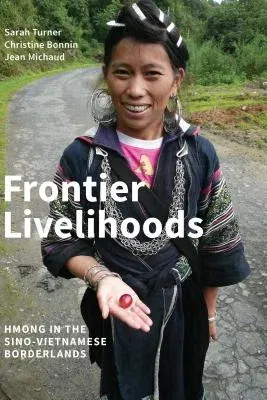Sarah Turner
(Author)Frontier Livelihoods: Hmong in the Sino-Vietnamese BorderlandsPaperback, 15 March 2017

Qty
1
Turbo
Ships in 2 - 3 days
In Stock
Free Delivery
Cash on Delivery
15 Days
Free Returns
Secure Checkout

Print Length
234 pages
Language
English
Publisher
University of Washington Press
Date Published
15 Mar 2017
ISBN-10
0295741732
ISBN-13
9780295741734
Description
Product Details
Book Format:
Paperback
Country of Origin:
US
Date Published:
15 March 2017
Dimensions:
22.1 x
14.22 x
1.78 cm
ISBN-10:
0295741732
ISBN-13:
9780295741734
Language:
English
Location:
Seattle
Pages:
234
Publisher:
Weight:
589.67 gm